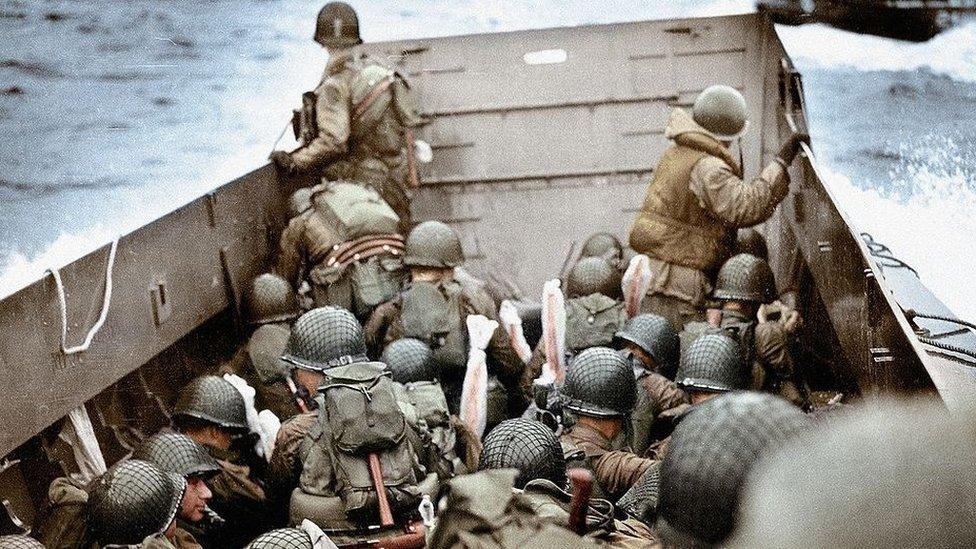The humble heroes who kept their tales of war to themselves
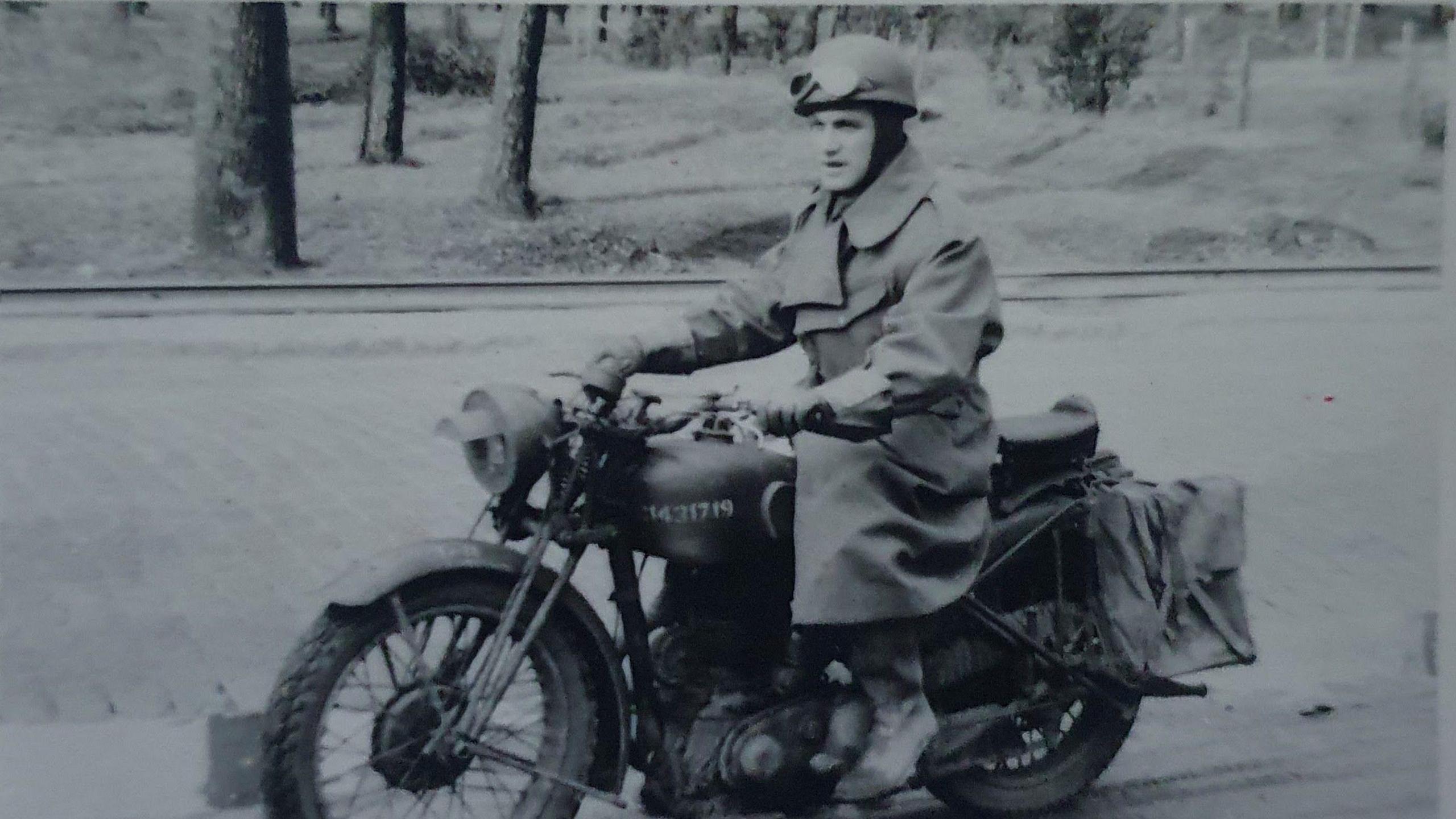
Ralph Fraser was in Normandy for D-Day as a motorcycle rider to guide convoys
- Published
Ronnie Fraser’s father, Ralph, never spoke about D-Day until he watched commemorations for the event on television decades later.
Ralph had fled Nazi Germany in 1939, along with several members of his family. He was 19 when he landed as a refugee and was interned as an “enemy alien” (a citizen of one country living in another country it is at war with), before being sent to Canada along with his younger brother.
He was then offered the chance to return to Britain and serve in the Army, and in June 1942 he joined the Pioneer Corps - a regiment predominantly composed of Jewish refugees.
“He was always grateful Britain took him in as a refugee, and proud to have served in the Army. His proudest moment was the day he received his British passport,” his son recalls in an interview with the BBC.
The following year, Ralph’s commanding officer warned him that if he was to go into Germany he needed to change his birth surname, Feibusch.
“He was stationed in Scotland at the time,” says Mr Fraser. “He went into a phone box and looked through the directory to find the most common name and that was Fraser.”
Mr Fraser’s father died aged 91 - he was 23 when he went to Normandy for D-Day, where his job as a motorcycle rider was to guide convoys to safety.
Mr Fraser said his father never spoke about D-Day or what he did until after watching commemorations for it on TV.
"He was so moved by it that he talked about it," he said.
"I did ask him if he was shot at and he said that it was a near thing."
He added: "He couldn't remember a lot of it but he talked about being incredibly tired and that one night he fell asleep propped against his motorbike."
Both Ralph and his brother survived the war and he returned to live in Westcliff, Essex. Now, his story is passed onto his son, Ronnie's four children and 11 grandchildren.
"They know all about him," says Mr Fraser.
'My father was first Allied soldier killed on D-Day'
D-Day: Daughter "so proud" after discovering father's sacrifice
Margaret Brotheridge's father is considered to be the first Allied soldier killed on D-Day, but she did not find out about his amazing story until she was 40.
Lt Den Brotheridge served with the Oxfordshire and Buckinghamshire Light Infantry and was part of Operation Tonga to seize what is now known as Pegasus Bridge in Normandy.
He was one of 181 hand-picked soldiers who packed into six gliders on the eve of D-Day, ready to fly into Normandy and battle.
"He was chosen to go first and I understand he got drunk as soon as he was chosen, because he knew he'd probably be [shot] first," Margaret told BBC Breakfast.
"But if you're in the Army you are trained to do a job."
He was gunned down as he led his men over the bridge just after midnight on 6 June 1944. Margaret was born 19 days later.
Each year, she returns to the town of Bénouville - the scene of the first, vital battle on D-Day - to support Arlette Gondrée’s café at the bridge.
The Gondrée family made a plaque for Lt Brotheridge’s grave from their kitchen table.
"I think he was one of thousands who were doing a job - and thankfully, they did,” Margaret says.
"There was sacrifice. But in the end there was freedom."
She says she is "very proud" of what her father - and all the soldiers, including all those who never came back – did that day.
'He was very solitary in many ways'
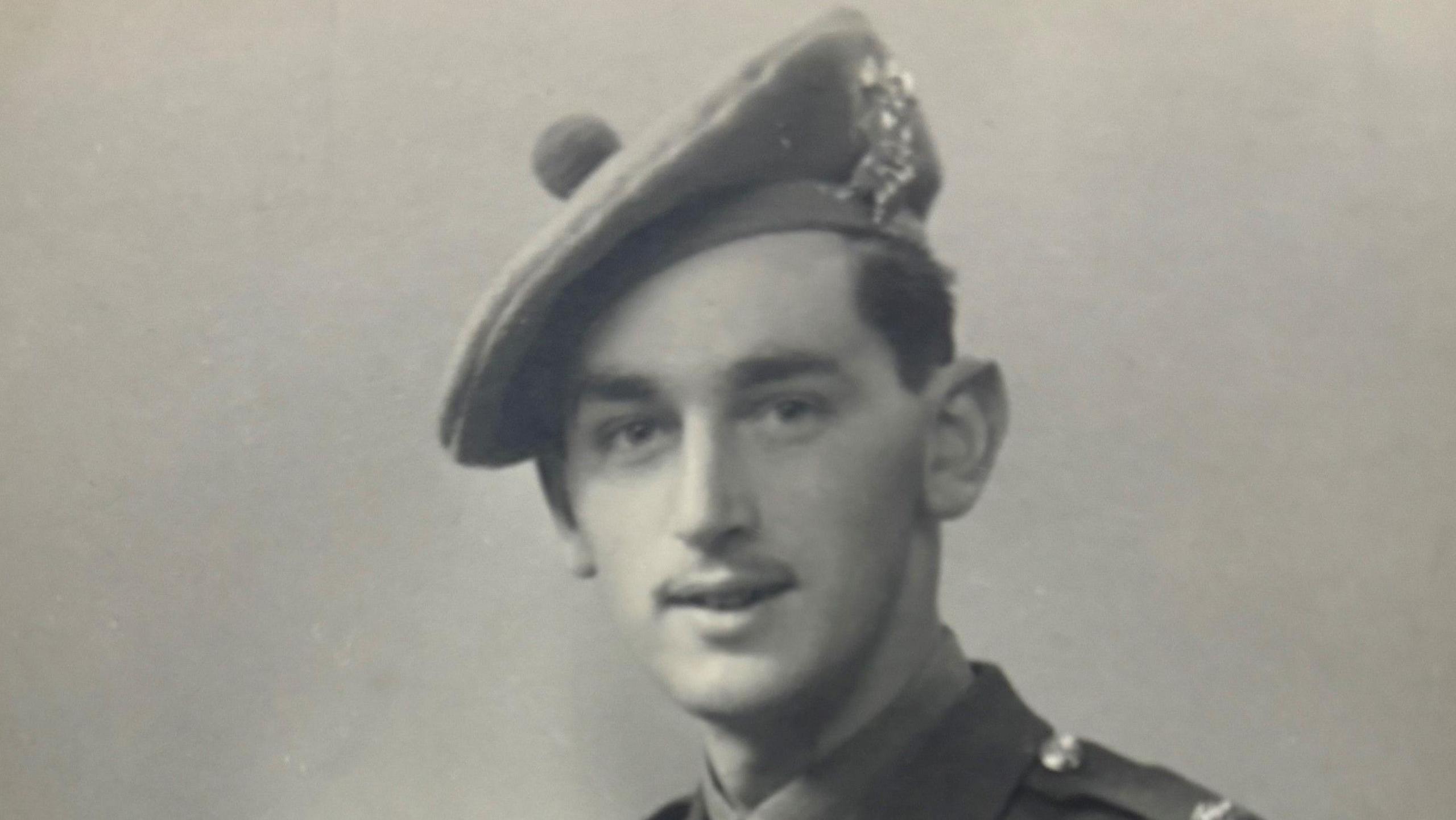
James "Jimmy" Wark joined up in 1942, when he was aged 19
BBC Newsnight presenter Kirsty Wark only discovered her father Jimmy's involvement in D-Day after researching his military history.
She says her father made the crossing on 16 June but did not fight until 10 days later.
He only saw action for one day, after becoming severely wounded and being shipped back to the UK before heading to Germany in 1946 as an intelligence officer.
"He was decorated, but never willingly talked about his wartime pursuits," she told BBC Radio 4's Today Programme.
"We knew very little about [his involvement in D-Day] - he was very reluctant to talk about it and the only information we had was from his citation.
"I think it affected him very much and I remember as a little girl my brother going into the linen cupboard and bringing out Dad's uniform and putting it on. That was one of the very few times I ever saw my father angry. I think he didn't want it to be taken lightly."
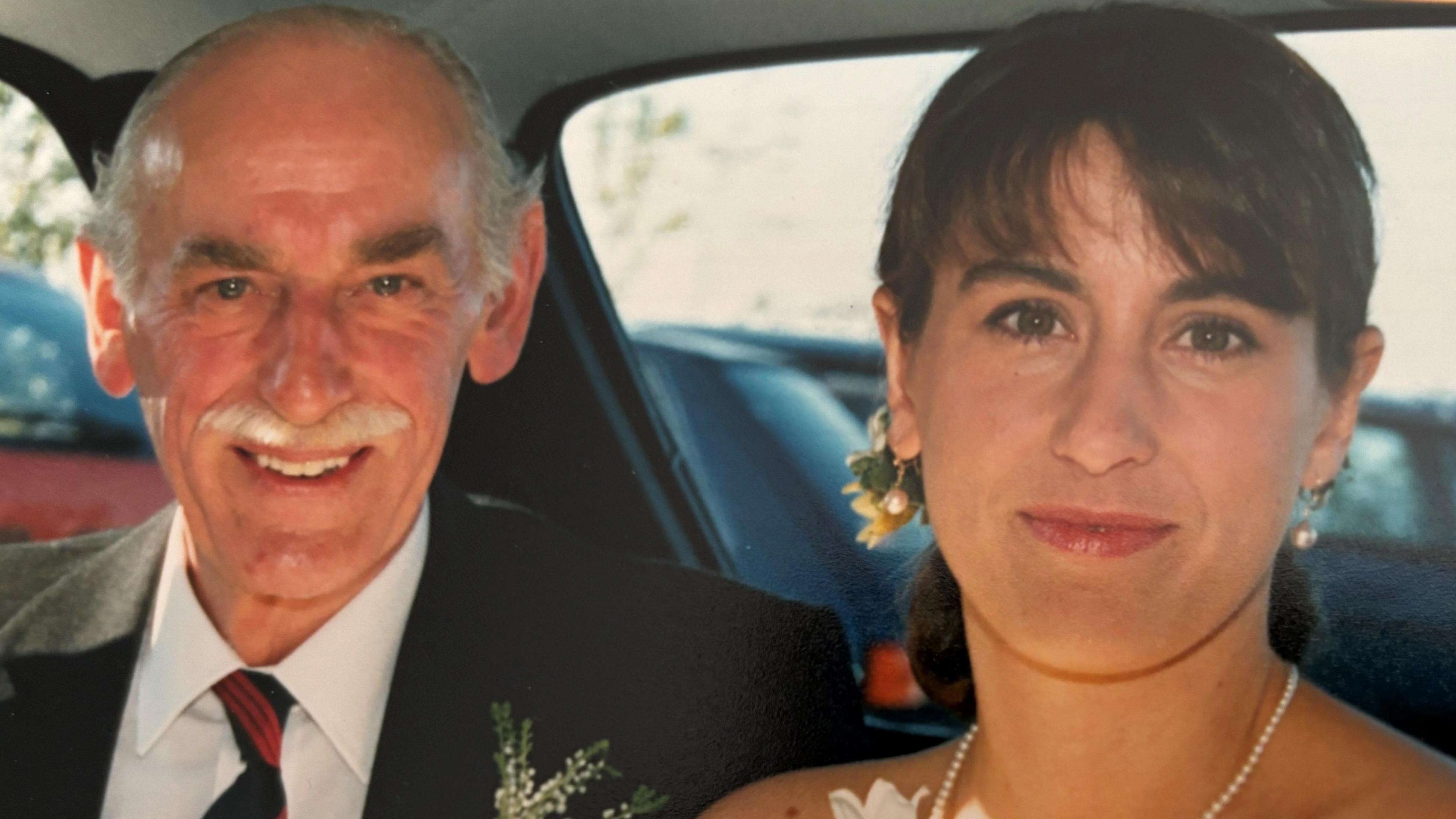
After researching his regimental history, Wark now has a clearer picture about what her father did on those northern French beaches in 1944.
"At 9 o'clock on 26 June, he was the platoon commander in C company. He and his men were to clear the way for tanks to get through a very badly mined orchard, under heavy gun fire.
"They took one machine gun nest. They lost men. Then, I don't know why he did it himself, but he rushed another one himself and took that. Then later on that day he was shot through the arm and was then shipped out. So he got a military cross for his actions that morning.
"He was a gregarious man but he was also very solitary in many ways and I suspect that on those times he spent fishing in the river he reflected on what he saw, not only in Cheux and the subsequent days in hospital, but also in a ravaged Germany in 1946."

Related topics
- Published5 June 2024
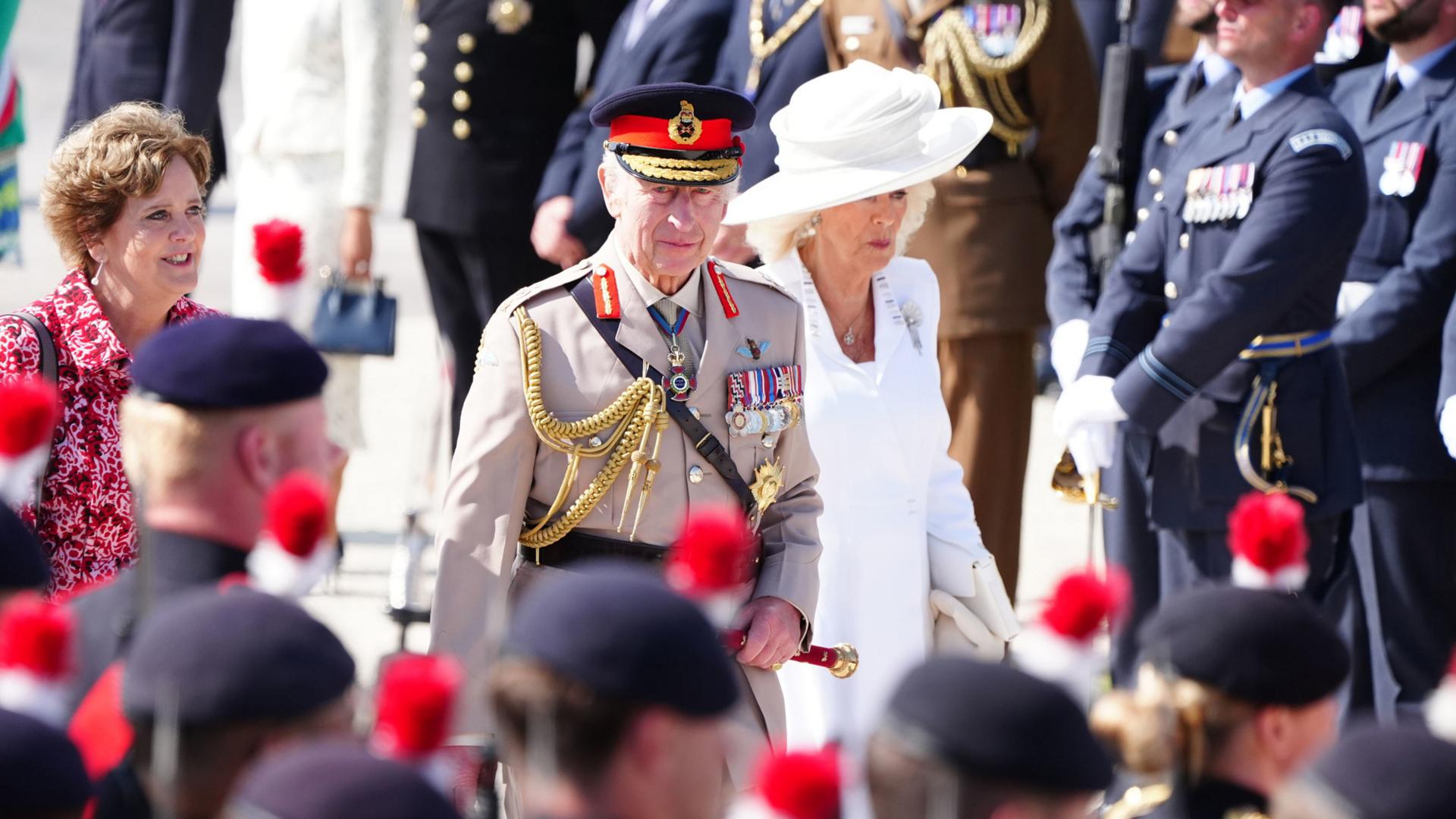
- Published4 June 2024
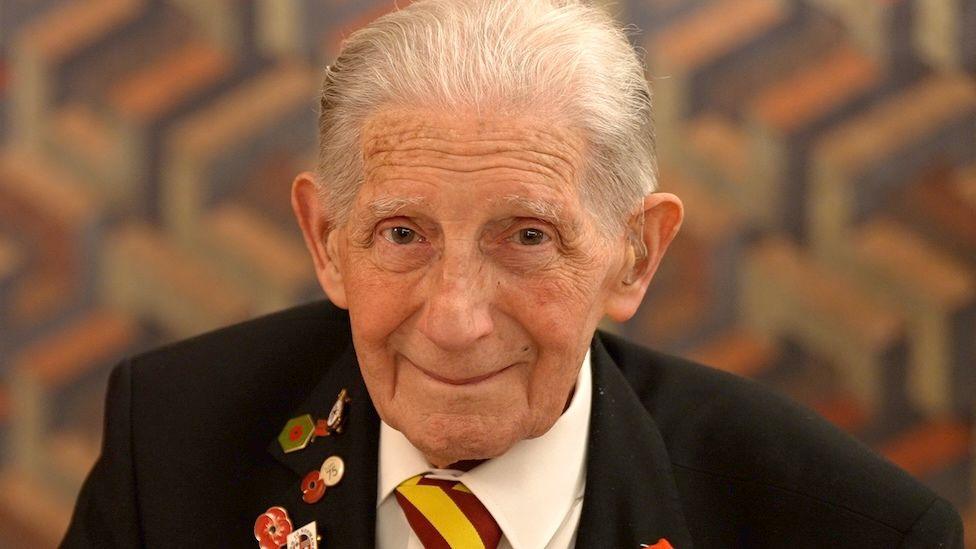
- Published6 June 2024
